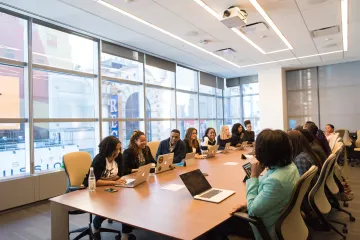
This 12 month course in Counselling Young People is based on an integrated model with a systemic focus.
At Relate at Family Action, we believe that young people’s lives are to some extent influenced by those they have around them: parents, school, peers and social media. When counselling young people, it is essential that we have an understanding of those forces and influences.
This course contains material to help counsellors to work with young people, and their presenting issues: such as gender, sexuality, suicide and self-harm, gangs and the law. It also explores vital thinking about what the new family landscape feels like. Consideration of the influence of social media, and the ways that young people try to ‘belong’ is embedded throughout the course.
Your learning will also incorporate an understanding of attachment theory, with helpful interventions from solution-focussed and cognitive behavioural theories to promote wellbeing and support change.
Successfully completing this course means you will:
- Be able to navigate ethical considerations of working with young people.
- Have a clear idea about the issues which are directly affecting young people today, such as suicide and self-harm, gender, sexuality and online life.
- Be able to apply a model of working which is cognisant of pressures which face young people.
- Have a better understanding of creative interventions and theories which can be helpful.
- Have an understanding of child development and its impact on their work.
Students are required to adhere to the Relate Code of Ethics & Practice and the BACP Ethical framework.
Course structure
The taught element of the programme consists of 10 days spread throughout the year delivered in two or three day consecutive blocks, plus one day of online learning. See the course dates for details. Please note that you must attend the first six days (blocks 1, 2 and 3).
Course content
Module 1: Overview, ethics and child development
Topics include: theoretical approaches, child development ethics, consent and assessment.
Module 2: Theories which support work with young people.
Topics include: exploring skills for working with young people, systems theory for individuals, attachment theory.
Module 3: Safeguarding, risk, suicide and self-harm
Topics include: assessing risk, safeguarding, suicide, and self-harm, on-line learning (in students own time).
Module 4: Difference, power, sex and gender
Topics include: difference, diversity, power, bullying, the on-line environment, sex, sexuality, gender.
Module 5: Self, model and client
Topics include: Self and role, identifying toolkits, working in an integrated way with young people, genograms of cases.
Teaching
The programme is delivered through a variety of participatory and interactive methods, including lectures, debates, presentations, audio-visual materials, structured skills development and practice, group exercises, skills and reflective practice, case presentations, peer observations and reflections and programme group meetings.
As this is a clinical programme, there is a strong emphasis on practical and experiential work, including personal and professional development groups.
Also, your supervised placement practice (counselling hours) will allow you to apply your learning and gain valuable experience and confidence from your tutors, supervisor and peers.
Assessment
Assessment is made through a combination of skills practice observation and submission of a number written assignments.
The assignments are designed to demonstrate that you have met the learning outcomes and the assessment criteria. All assignments will be marked pass or fail. Anyone who fails their first submission will be allowed a second submission.
The central focus of the assessment process is to encourage and enable you to:
- Engage in learning activities/processes commensurate with the academic level of the course.
- Engage in personal evaluation of your own progress using critical reflection on your learning, utilising feedback from peers, supervisors and tutors.
- Assume responsibility for your own learning.
The assessment breakdown is as follows:
1. A tutor marked/observed practice skills assessment & evaluation.
2. A written reflective essay (1500 words).
3. A case presentation to peers and tutor (c1000 words).
4. A written reflexive review of a case study (2000 words).
5. Submission of a portfolio.
Each assignment is marked in accordance with Relate at Family Action standards and policies.
Supervised placement
Students will need a placement with Relate at Family Action or a recognised centre. For details on how to secure a placement, please contact training@relate.org.uk.
The clinical placement consists 30 supervised hours of practice by the end of the course. Along with the practice hours, students are expected to attend 1.5 hours of supervision per month.
Entry requirements
Prospective students must:
- Be aged 19 or over.
- Hold a minimum Level 5 Counselling qualification or the CPCAB L4 in Therapeutic Counselling (100 hours of supervised practice).
- Have a clinical placement within Relate at family Action or a recognised centre.
All successful applicants will be required to have the appropriate DBS (Disclosure Barring Agency) checks.
Applicants are strongly advised to ensure that they have adequate word processing and IT skills, access to a computer and the Internet will also be needed before and throughout this course. All course materials and assignments are accessed and submitted through our learning platform, Learn Relate.
Interview
Applicants will be required to attend an interview with their placement centre and will need to demonstrate personal qualities relevant to therapeutic practice and training, which include:
- Respect for and valuing of others, and their differences.
- A commitment to anti-discriminatory practice.
- A capacity of personal emotional resilience.
- A capacity to cope with the professional and academic demands of the course.
- A capacity to be reflexive and use experience and feedback constructively.
Acceptance on a course will be conditional on a confirmed placement.
Course dates and venues
Course code VIR/YP/007
Location: Virtual
Start date: 20 September 2025 End date: 20 September 2026
Start time: 09.30 End time: 17.00
Application deadline: 08 August 2025
The course will consists of the following blocks* of training dates:
Block 1: 20th and 21st September 2025
Block 2: 18th and 19th October 2025
Block 3: 22nd and 23rd November 2025
Block 4: 10th and 11th January 2026
Block 5: 07th and 08th February 2026
*Please note that you must attend blocks 1, 2 & 3.
Course fees
This course costs £1,800.
Once your place on our course has been secured, you will need to pay. Course confirmation and materials will not be released until payment has been made.
Additional expenses
These will vary depending on personal circumstances, but these should be taken into consideration when applying. We are unable to contribute to any of these additional costs. These costs may include:
- Travel and accommodation costs, it is advised that you do not book these until course dates are confirmed.
- Buying books/resources etc.
- Enhanced DBS (Disclosure and Barring Service) Certificate.
All fees must be paid either in full or as agreed. Failure to pay will result in your exclusion from the course.
- If you withdraw within two weeks of starting the first block, you are liable to pay 25% of the total course fees, minus the non-refundable costs.
- If you withdraw within four months of starting the first block, you are liable to pay 50% of the total course fees, minus the non-refundable costs.
- If you withdraw any time after five months of starting the first block, you are liable to pay 100% of the total course fees.
Non refundable costs
- Application process fee
How to apply
For details on how to secure a placement, please contact training@relate.org.uk.



